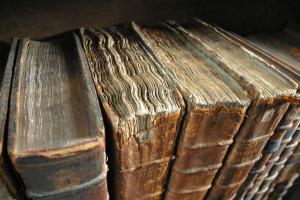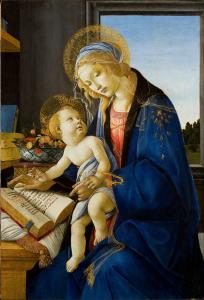 In this extraordinary time of forced isolation, a time that promises to extend longer than any of us first hoped or desired, I have found special joy in the acts of reading and writing. I have long been a voracious reader, learning that wonderful and magical art at an early age, poking my growing nose into books ever larger as I grew, spending hours of fabulous time in libraries from Indiana to Arizona to Iowa to Texas to California. Some of this reading was a duty, made so by the pursuance of one graduation or another, but the majority of my book time was far more than duty; it was pure delight. And as I grow older, that delight has only increased. Give me a book, and I am set for the day!
In this extraordinary time of forced isolation, a time that promises to extend longer than any of us first hoped or desired, I have found special joy in the acts of reading and writing. I have long been a voracious reader, learning that wonderful and magical art at an early age, poking my growing nose into books ever larger as I grew, spending hours of fabulous time in libraries from Indiana to Arizona to Iowa to Texas to California. Some of this reading was a duty, made so by the pursuance of one graduation or another, but the majority of my book time was far more than duty; it was pure delight. And as I grow older, that delight has only increased. Give me a book, and I am set for the day!
From the beginning of my academic career that spanned 36 years, I have discovered another deep pleasure in writing. I have penned and typed a dozen books over the past 30 years or so, and each of them holds a special place; from that first one that I struggled with to gain academic tenure to the last one, a novel that brought a rich gratification, and at the same time revealed that no great novelist was I! To the very few that read it, thank you, but I actually wrote it for me, since it was such fun.
In addition to these book-length treatises, written to satisfy my academic guild and my institution’s thirsty desire for ripe and constant production from its scholars, I also wrote any number of essays, mainly housed in obscure foreign and American journals, read only by the few who shared my passion for a tiny corner of one academic field. But since my retirement from full-time life in academe, I have written over 350 more popular pieces, Blog Posts as some would say, through the good offices of that large electronic platform, Patheos.com. By rough estimate those essays comprise some 420,000 words, equivalent to three or four of my book-length tracts. These shorter articles are directed toward pastors and church teachers who are looking for sermon fodder and class support for their Sunday efforts. I have no idea how many are reading these brief efforts, but I doubt it is more than a handful. I do on occasion hear from a reader or two, suggesting that they have found at least some value in what I am doing, so I persist in it. I hasten to say that I am not paid for this work, but never did it for financial reward in the first place. Like my novel on King Saul of Israel, I write these essays primarily for me, to activate my aging brain and to clarify my own religious faith.
Perhaps the most famous comment ever written about writing books comes from the work of that peculiar Israelite cynic, known popularly as Ecclesiastes, but whose Hebrew name is Koheleth. Toward the end of his challenging series of reflections and skeptical aphorisms, he says, “Making many books has no end and long study yields a weary flesh” (Ko.12:12). I admit to being very glad of the first idea of the sentence; I hope that there is in fact no end to the creation of books, however poor some of those may always be. Charles Dickens noted that of many books the very best thing about them were the covers and the endpapers, a cynical comment to be sure, but just as surely not wrong. And though I must also agree with the second part of Koheleth’s sentence that much study does bring a weariness of flesh, I thoroughly disagree that such weariness is necessarily a bad thing, as Koheleth clearly implied. Long study of many books can certainly make a person tired, but that tiredness has valuable fruit, too. My own doctoral dissertation on the biblical book of Job sent me to huge numbers of books and articles in multiple languages and lured me into serious reflection on the old loud mouth from Uz. I would not give up any of that labor for the world; that dissertation, for all of its shortcomings and weaknesses, remains the single most satisfying writing I have ever done. At the end of the 400-page piece, I was certainly weary, but at the same time certainly delighted with what I had done.
In our local newspaper today there was an arresting essay wondering about a curious decision that was made when our governor two weeks ago today determined that all Californians needed to remain in isolation from one another, staying at home primarily, to help stop the terrible spread of Covid-19. Only “essential” businesses were to remain open to supply the very basic needs of the 40,000,000 residents of our state. One could easily name what businesses were deemed essential: grocery stores, drug stores, hardware stores, delivery or take-out restaurants only, mail delivery, and a few others like car mechanics, plumbers, electricians as needed. This article did note one possibly curious inclusion in the list of essential businesses: cannabis stores were to remain open, too. As is well known, recreational cannabis is legal in California, and there are over 1100 retail stores where one can purchase the drug over the counter. The author of the article found this decision odd, in the main because medical cannabis can readily be obtained in pill form, while smoking the drug is generally confined for pleasure. If that is so, why, asks the author, close the tobacco stores, since smoking marijuana can be seen as equivalent to smoking tobacco in terms of its effects on others? I have no complete knowledge of that argument, so I will not offer an opinion.
However, in the essay the author went on to claim that to name cannabis as essential while closing all bookstores at the same time was to make a serious mistake. Now it is true that some bookstores remain at least partially open, accepting on-line orders and delivering those books outside the door of the store or at the curb, but there are no places in California where one may merely wander into a bookstore and move around at one’s leisure. Yet one may do precisely that in a store selling cannabis. I hasten to say that I agree fully with the decision to close bookstores to wanderers, because it is precisely the wanderer who could infect any number of fellow wanderers with Covid-19. But to designate cannabis as “essential,” and to suggest by implication that books are not essential, is to make a huge mistake.
Books, indeed all reading matter, are more essential than ever at such a time as this. The thought of not having anything to read over the next weeks of isolation is too monstrous to contemplate. I have just finished the magnificent trilogy of novels on that elusive man of power of 16th century England, Thomas Cromwell, written by Hilary Mantel. These are great books indeed, filled with sharp writing, great humor, incisive insight on politics, religion, and general life in that time of our shared history. I absolutely loved all 1700 pages or so, my interest hardly flagging for a moment. This was to me essential reading; I would be a lesser person for not having read these wonderful books from a supremely gifted author. I am grateful beyond telling for her huge effort of more than ten years to bring this man to life in a way that no traditional history could ever do.
Historical fiction may not be your cup of tea, but whatever floats your literary boat, I know that these long hours of isolation will afford many opportunities to indulge your special reading pleasures. I am now on to rather lighter fare, losing myself in the Volker Kutscher series of Gereon Rath stories, set in pre-Nazi Germany. I am now reading the fourth of the series, and find their noir-like proclivities to my taste at the moment, set as they are in the lengthening shadow of the horrifying 12 years of Hitler’s period of power. I can readily lose myself in the twisting warrens of a pre-war Weimar Berlin.
And I welcome the time, too, to add to my essays, both the ones based on one biblical lectionary list or another, or those that merely reflect on some thing that has sparked my interest, like the one you are reading, if you still are! How grateful I am for reading and writing! Both are to me gifts from the God I love who loves me, and bids me use whatever gifts I possess to compose a series of words, and to read a series of words, that compel, challenge, surprise, aid, and move me to think, act, and love more fully and deeply. I pray that during your own isolation, you are finding ways to grow as a human being so that when this pandemic has run its course, you and I may emerge more dedicated to the life of the world and to those creatures that inhabit it. May a book or two, or an essay or two, help you in that quest.
(Images from Wikimedia Commons)










